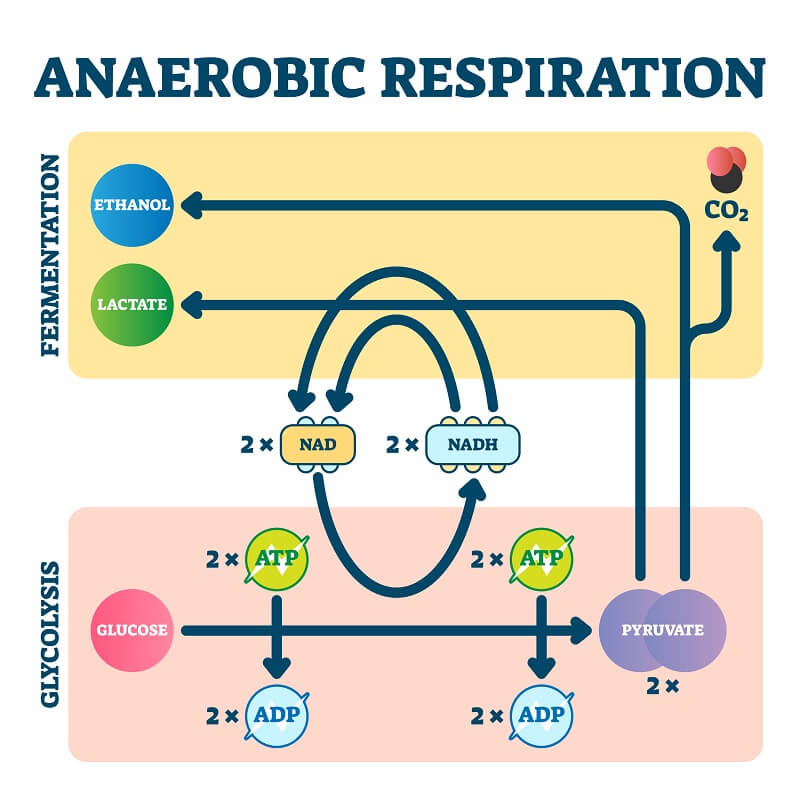
Fermentation presented by. Atp is synthesized from the food we eat.
The key difference between aerobic and anaerobic fermentation is that aerobic fermentation uses oxygen whereas anaerobic fermentation does not use oxygen.
Aerobic respiration vs fermentation. Aerobic respiration and fermentation are two processes which are used to provide energy to cells. In aerobic respiration carbon dioxide water and energy in the form of adenosine triphosphate atp is produced in the presence of oxygen. Fermentation is the process of energy production in the absence of oxygen.
One of the most striking differences though between fermentation and aerobic respiration is the end product. Fermentation process yields only 2 atp while the other produces 38 atp. This gives the impression that aerobic respiration is a more reliable way of harnessing biologic energy.
In another analysis making atp is much simple for aerobic respiration because oxygen aids in generating atp for an indefinite period of time. Fermentation presented by. Tayyaba khaliq bmmg 17 13 shabab zahra bmmg 17 30 aneeqa sadiq bmmg 17 44 2.
Introduction all living creatures require energy to live replicate and to do their normal work. This energy comes from atp. Atp is synthesized from the food we eat.
Anaerobic respiration begins the same way as aerobic respiration and fermentation. The first step is still glycolysis and it still creates 2 atp from one carbohydrate molecule. However instead of ending with glycolysis as fermentation does anaerobic respiration creates pyruvate and then continues on the same path as aerobic respiration.
In presence of oxygen. In absence of oxygen. Anaerobic respiration in presence of nitrate sulphate carbonate in absence of oxygen it is an example of anaerobic respiration site.
Fermentation vs respiration. Definition types and differences the term ferment is derived from the latin word fervere meaning to boil in the late 14th century alchemists described fermentation process and it became the subject of scientific investigation in the 16th century. Thus aerobic fermentation does not actually refer to a fermentation process.
This process refers to the process of cellular respiration. The key difference between aerobic and anaerobic fermentation is that aerobic fermentation uses oxygen whereas anaerobic fermentation does not use oxygen. Fermentation is another anaerobic non oxygen requiring pathway for breaking down glucose one that s performed by many types of organisms and cells.
In fermentation the only energy extraction pathway is glycolysis with one or two extra reactions tacked on at the end. Fermentation and cellular respiration begin the same way with glycolysis. Anaerobic respiration refers to a category of cellular respiration that happens in the absence of oxygen while fermentation refers to any chemical reactions to convert sugars into carbon dioxide and ethanol induced by microorganisms.
